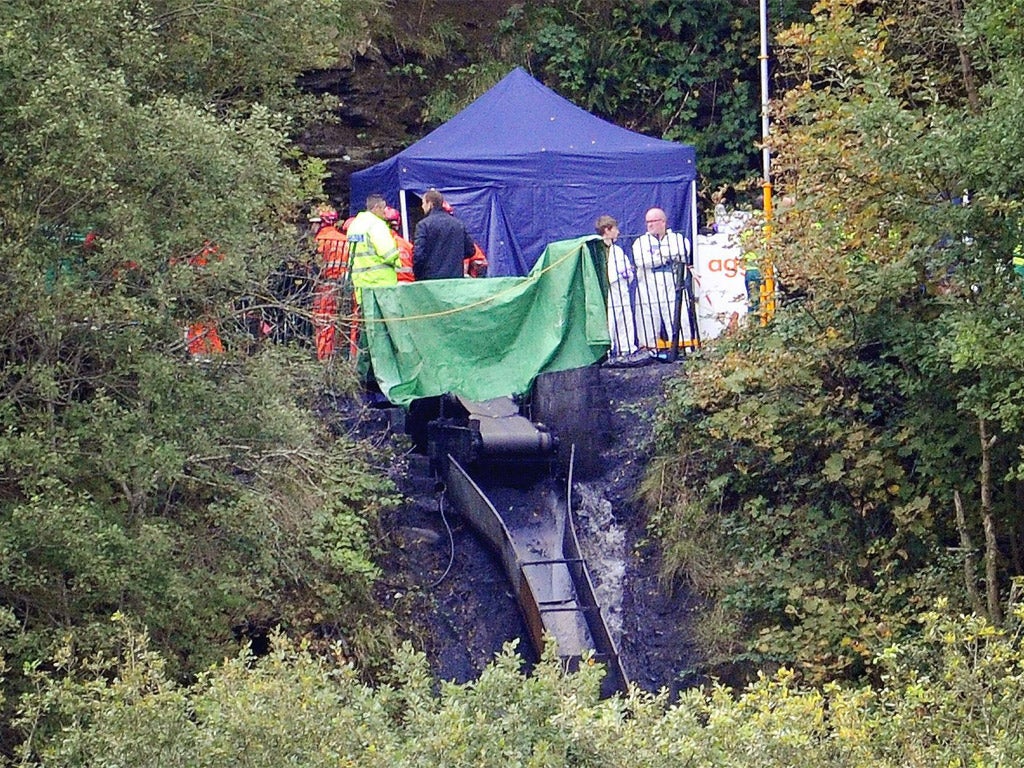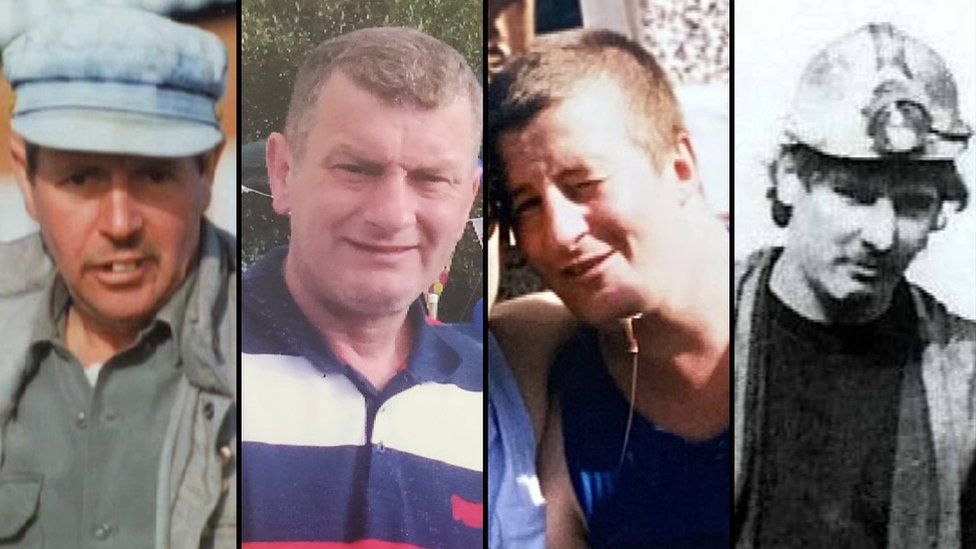Bereaved and survivors continue to call for inquiry 10 years after Gleision Colliery mining disaster
Bereaved, survivors, and the mine’s owner want an inquiry for answers

Your support helps us to tell the story
From reproductive rights to climate change to Big Tech, The Independent is on the ground when the story is developing. Whether it's investigating the financials of Elon Musk's pro-Trump PAC or producing our latest documentary, 'The A Word', which shines a light on the American women fighting for reproductive rights, we know how important it is to parse out the facts from the messaging.
At such a critical moment in US history, we need reporters on the ground. Your donation allows us to keep sending journalists to speak to both sides of the story.
The Independent is trusted by Americans across the entire political spectrum. And unlike many other quality news outlets, we choose not to lock Americans out of our reporting and analysis with paywalls. We believe quality journalism should be available to everyone, paid for by those who can afford it.
Your support makes all the difference.Families of four experienced miners who died while working 10 years ago today are calling for an inquiry into their deaths.
Charles Breslin, 62, David Powell, 50, Phillip Hill, 44, and Garry Jenkins, 39, died when 650,000 gallons of water flooded the Gleision drift mine, in Neath Port Talbot, south Wales, in September 2011.
The floodwater 90 metres (300 ft) below ground is believed to have been released by the use of explosives in the routine mine-blasting operation.
Their bodies were recovered from the Gleision the day after the flooding by a rescue mission involving 200 people including firefighters, police, and members of the Mines Rescue Service.

In 2014, the mine’s manager and owners MNS Mining were cleared of gross negligence manslaughter and corporate manslaughter charges. No inquest has been held.
After the trial the acting coroner for Swansea decided not to hold a full inquest into the four men’s deaths.
Breslin’s widow, Mavis, said she felt “cheated” of a husband, and an inquest or inquiry.
Lynette Powell, whose husband David celebrated his 50th birthday in the weeks before he died, said all she has is a temporary death certificate.
“That is no closure for me,” she said. “I haven’t got an inquest. Not only for me, for all the families.”
Maria Seage, the co-owner of Gleision mine, supported the call for an inquiry. She said: “There’s still so many unanswered questions and the only way to get them answered is re-open the mine, re-survey the mine, have a proper inquiry or proper inquest.
“And if, by doing that, I am found that I have done something wrong – as far as I know I haven’t – but if that day comes and they find yes I have, well, I’ve got to take what’s coming.”
Jake Wyatt was one of three men in the colliery that had fled the mine.
In a BBC Wales documentary to be aired tonight, he said he feels there are still questions to be answered.
Mr Wyatt says: “My opinion was all this was going to get swept under the carpet. Nobody wanted to know anything about it and it went from being such a high-profile case to nothing within a couple of years.”
Fellow survivor Nigel Evans says in the programme: “As it stands now nobody’s been blamed. Somebody must take responsibility for four bodies, four men, four lives, you know?”
Peter Hain, the former Welsh secretary and the MP for Neath at the time, said today: “There are still plenty of unanswered, unexplained questions about this tragedy. I pressed hard for an inquest or inquiry at the time to establish the cause.
“Why were the men driving straight toward a massive pool of old mine water, when the pool was clearly shown on the underground map they were working from?
“The families are haunted by questions and deserve proper answers.”
BBC Wales documentary ‘Trapped Underground: The Gleision Mining Disaster’ will air tonight at 8pm.
Join our commenting forum
Join thought-provoking conversations, follow other Independent readers and see their replies
Comments